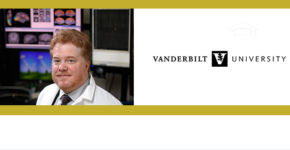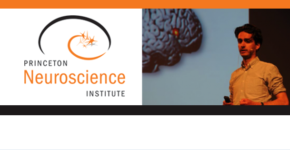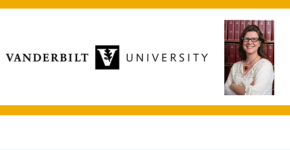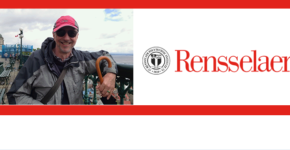Category: Neuroscience
-

Alex Maier, Vanderbilt University – Mind’s Eye Blink
Does your mind’s eye blink? Alex Maier, assistant professor of psychology at Vanderbilt University, discusses this question. Alex Maier obtained his Ph.D. in neuroscience at the Max Planck Institute of Cybernetics in Germany. He worked as a research fellow at the U.S. National Institutes of Health before joining Vanderbilt’s faculty as an assistant professor, where…
-

Lauren Howard, Franklin & Marshall College – Social Learning of Apes
Do primates learn from being social? Lauren Howard, assistant professor of psychology & scientific and philosophical studies of mind at Franklin & Marshall College, delves into how apes and chimpanzees pass along and learn information. Lauren is an Assistant Professor at Franklin and Marshall College (Psychology Dept / Scientific and Philosophical Study of the Mind…
-

Alex Burmester, New York University – Working Memory
If you’re listening to this right now you’re using working memory. Alex Burmester, research associate in perception and memory at New York University, explores this type of memory. Alex is a postdoctoral researcher in the Fougnie lab at NYU Abu Dhabi. His research utilizes psychophysics, computational modeling, and neuroimaging to understand how humans remember visual…
-

Justin Couchman, Albright College – Uncertainty
You can’t always give students what they want. Justin Couchman, associate professor of psychology at Albright College, discusses why giving them what they need can be hard, but useful. Justin Couchman is a cognitive psychologist who researches uncertainty. His work focuses on a mental ability called metacognition, which is often described as “thinking about thinking”.…
-

Hui-Chen Lu, Indiana University – Coffee and Dementia
I hope you’ve had your morning coffee today. Hui-Chen Lu, professor of neuroscience at Indiana University, explores whether a coffee a day can keep dementia away. Hui-Chen Lu, is a Gill Chair of Neuroscience in the Department of Psychological and Brain Sciences at Indiana University. She received her Ph.D. from Baylor College of Medicine, Houston.…
-

Neil Garrett, Princeton Neuroscience Institute – Dishonesty
What causes dishonesty? Neil Garrett, postdoctoral researcher in the Daw Lab at the Princeton Neuroscience Institute, looked into our brains to find a clue. I am a Postdoctoral Researcher in the Daw Lab at Princeton Neuroscience Institute. Before this, I received my Ph.D from the department of Experimental Psychology at University College London (UCL) in…
-

Isabel Gauthier, Vanderbilt University – Sex Differences in Facial Recognition
Women outperform men when it comes recognizing faces. Isabel Gauthier, Professor of Radiology and Radiological Sciences at Vanderbilt University, delves into her research into this topic. Gauthier studies visual object recognition, with particular emphasis on the plasticity of recognition mechanisms and their neural substrate. One issue that is of particular interest to her is how…
-

Kim Burchiel, Oregon Health & Science University – Deep Brain Stimulation
Can a hockey goalie for your brain help stop Parkinson’s? Kim Burchiel, Professor in the Department of Neurological Surgery at Oregon Health & Science University, discusses how deep brain stimulation can help treat this debilitating disease. Dr. Burchiel is the John Raaf Professor in the OHSU Department of Neurological Surgery. Dr. Burchiel served as department…
-

Wayne Gray, Rensselaer Polytechnic Institute – Extreme Experts
What is an extreme expert? Wayne Gray, professor of cognitive science at Rensselaer Polytechnic Institute, looks at this group and their exceptional capabilities. Professor Gray earned his Ph.D. from U. C. Berkeley in 1979. His first position was with the U. S. Army Research Institute where he worked on tactical team training (at the Monterey…
-

Jeff Iliff, Oregon Health & Science University – The Brain’s Janitor
Your brain’s janitor may get worse as you age. Jeff Iliff, Professor in the Department of Anesthesiology and Perioperative Medicine at Oregon Health and Science University, discusses how the brain’s cleaning process may be hindered as we get older, and could be a trigger for diseases such as Alzheimer’s. Dr. Jeffrey Iliff is an Assistant…
